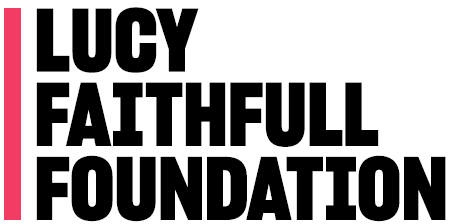Here is how schools can prevent harmful sexual behaviour
More and more young people are behaving in sexually harmful ways.
An Ofsted review in 2021 found that “the issue is so widespread that it needs addressing for all children and young people… schools, colleges and multi-agency partners [should] act as though sexual harassment and online sexual abuse are happening, even when there are no specific reports.”
Young people, their families and schools all need support to address the problem. And the solutions need to be based on research and evidence, so that we know they’re really effective.
How we’re responding to the issue
We’ve just published a new report from the second year of our three-year project working with schools. The project has three main aims.
- Respond: to help schools to respond well when an incident of harmful sexual behaviour occurs.
- Learn: to produce evidence and insights to influence government and education strategy.
- Prevent: to make schools safer places for children and young people by preventing harmful sexual behaviour.
Each year, we’re working in depth with 10 different schools to find out about their specific issues and develop unique engagement plans to help them respond to harmful sexual behaviour.
What did we learn?
The findings from year two are consistent with what we learnt in the first year of the project, while extending and deepening the evidence base.
Supporting staff
We shifted focus from issues faced by students to issues faced by staff, because of the pressing need to ‘safeguard the safeguarders’ and to consider what Designated Safeguarding Leads (DSLs) really need to fulfil their increasing responsibilities.
The emphasis on the need to ‘safeguard the safeguarders’ demonstrates that schools are staffed by people who care deeply for their students, while being called upon to navigate, respond to and cope with demands and expectations that may compromise their ability to undertake safeguarding as effectively as possible.
Our evidence demonstrates that what DSLs really need is time, training and support. This is especially significant when we consider the pivotal role that DSLs play in preventing, responding to and resolving incidents of harmful sexual behaviour in schools.
Supporting students
We identified, in the project’s first year, that there is a knowledge-practice gap. This means that students may be able to absorb and reproduce the factual information taught in Relationships, Sex and Health Education (RSHE) lessons, but there is no guarantee of behaviour change.
Students and staff acknowledge the need to move towards a ‘tools not rules’ curriculum to enable skills practice. RSHE needs to be carefully designed and delivered to resonate with students in ways that meaningfully impact their behaviour. RSHE must engage with the issues that young people think are relevant and address attitudes, beliefs, social norms and skills.
Some engagement plans identified problems connected to challenging normalisation and addressing gender dynamics without unduly stereotyping or alienating young people. These challenges are common across contexts at the current time and require careful consideration by adults involved in preventative safeguarding through RSHE.
Supporting families and other professionals
Finally, the need to work in effective partnerships with other agencies and with parents and carers reflects a recognition that schools cannot solve the problem of harmful sexual behaviour alone. Partnerships need to be supportive and tailored to the needs of the families within particular school communities.
There may be particular challenges engaging with families whereby there may be abuse occurring in the home and/or other patterns of disadvantage, while in general, schools potentially experience difficulties in developing school-home partnerships in terms of consistent messaging and modelling of behaviour. There is a need to consider which families are identified ‘at risk’ and why, coupled with critical reflection on what, exactly, families are being asked to do in terms of establishing messages, rules and behaviours at home. For example, evidence suggests that the common request from schools for parents to restrict and monitor their children’s use of mobile and other digital devices is not fully evidence-based because of the potential counterproductive, albeit typically unintended, consequences such as damage to trust, increased secrecy, and removal or concealment of material by young people.
To achieve consistent messaging at school and at home, three-way communication in school-parent-student initiatives is needed.
Read the full report to find out more.
What next
The third year of the project is already underway: all ten year three schools have been recruited and the majority of planned work has already been delivered. Findings from year three will be shared in a final project report in June 2025.
Questions arising from year two’s findings to be explored in the project’s final year include:
- how can we support schools to more effectively lever support from their wider community?
- how can schools more confidently access external providers to share their expertise to address specialist topics?
- does the protective behaviours approach also hold promise as a shared approach to multi-agency safeguarding if partner agencies undertake common training?
Find out more
If you’re interested in the project and want to get involved, please get in contact with Laura Nott, our Schools Project Manager, on 07706 347981 or lnott@lucyfaithfull.org.uk.
Take a look at our information for schools, which includes free resources, information and guidance.
Our anonymous Stop It Now helpline can support any adult worried about a child or young person’s sexual behaviour. We’re open every weekday.
Our Shore website has anonymous advice and information for teenagers worried about their own or a friend’s sexual behaviour.
Support us
Want to support our work to prevent child sexual abuse? Donate now.
Sharing our posts and information helps us reach more people and protect more children. Sign up to receive our emails and find us on Twitter/X, Facebook, LinkedIn, Instagram and YouTube.
Sign up for news & updates
Fill in our newsletter form hereTo support our work to protect children, donate today.
Donate today






